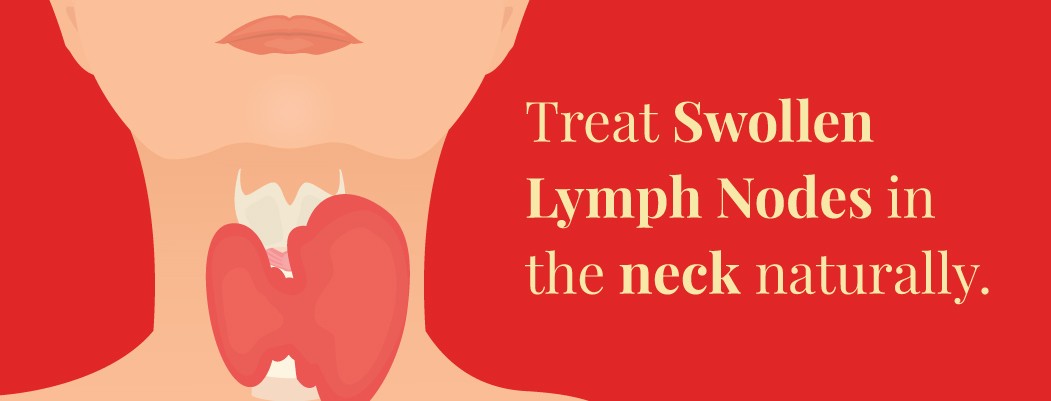
General description
Your body’s natural defense against disease or infection is swollen lymph nodes. These small bumps are delicate and often uncomfortable. An upper respiratory infection is the most typical cause of swollen lymph nodes, although there are other potential causes. See your doctor if they increase in size without a clear cause.
Typically, a bacterial or viral infection causes swollen lymph nodes. Your body’s defense against infection is greatly aided by the lymph nodes, commonly known as lymph nodes. They serve as filters, capturing germs like bacteria and viruses before they can spread to other areas of the body. Swollen lymph nodes can be detected in the neck, chin, armpits or breakwater, among other common places.
In certain cases, treating swollen lymph nodes may require only time and warm compresses. However, treatment for enlarged lymph nodes caused by infection depends on the underlying reason.
What are lymph nodes?
The lymphatic system, an intricate network of nodes and arteries, includes lymph nodes.
Lymph nodes in some parts of the body, such as the neck, armpit, and groin, are close to the skin. This means that when an infection sets in, a person may feel swollen.
Additionally, there are lymph nodes in the stomach and between the lungs. However, neither the brain nor the spinal cord have lymph nodes.
Lymph node name Location
Cervical neck
Armpit Axillary
Inguinal Gronin
Home remedies for swollen lymph nodes
Swollen lymph nodes usually go away on their own. They may have grown in reaction to an illness, but once the illness is gone, they should return to their normal size.
But it may take two weeks or more. In the meantime, the following measures can be taken to relieve symptoms:
Apply warm, wet compresses.
Drink a lot of water
Allow the body to rest and heal.
Chilli Peppers
Chili peppers can widen blood vessels and increase circulation. The body can transport fluids more easily due to better circulation, which can help decrease edema.
Cayenne pepper can be consumed by adding it to regular meals. If they don’t like spicy food, it will be easier for them to drink the component. Try making a drink with cayenne pepper, honey, and warm water that you can consume one or more times during the day.
cinnamon and basil
Common household ingredients, basil and cinnamon, have antibacterial and anti-inflammatory properties.
Some people like to mix them into a hot drink. To create the cure:
2 teaspoons of cinnamon and basil are added to 3 cups of boiling water.
After 15 minutes, simmer and let sit.
To remove solid components, strain the mixture through a sieve.
Beaver oil
Castor oil is a pain reliever and anti-inflammatory that improves blood flow and helps the body eliminate toxic elements.
Castor oil should be carefully massaged into the skin over the lymph nodes.
Wet the washcloth with hot water and then wring it until it is warm and damp.
For five to ten minutes, hold this towel against the area of skin where you just applied castor oil.
Wash your skin well with warm water.
For one week, or until you see improvement, repeat twice daily.
aloe vera
Aloe vera contains all-natural anti-inflammatory and antibacterial characteristics, as well as being a fantastic skin ointment.
For quick pain relief, gently massage some of the gel from this tropical plant into the skin above the lymph nodes.
Squeeze the gel from a piece of aloe vera onto your finger.
Rub the gel onto the lymph nodes and skin.
Use some gauze or cloth to cover the affected regions.
Remove the cover after about 25 minutes have passed.
Two or three times a week repeat this practice.
camomile tea
Chamomile is another tea ingredient popular for treating swollen lymph nodes.
Although it is preferable to use fresh flowers, chamomile tea bags can work if you don’t have any.
Add hot water to a cup.
Include chamomile flowers (or tea bags).
Give the tea six minutes to steep. To keep warm, consider covering the cup.
After straining the tea, you may want to add honey.
Drink up to two or three cups daily, or until you start to notice changes.
Lemon
Lemon juice and honey can be combined to create a delicious and healthy drink.
Lemon can also reduce the size of enlarged lymph nodes, soothe a sore throat, and thin mucus.
The lemons are cut in half.
Salt and black pepper should be sprinkled on one half.
Lick the surface of the lemon. Repeat several times a day.
EITHER
Mix warm water and lemon juice, then pour the mixture into a glass.
Use this combination to gargle, as mentioned above. Repeat several times a day.
Garlic
Another natural remedy that you can find in most kitchens is garlic. It is also one of the simplest solutions available because you usually only need to add it to your regular diet.
Eat a few raw garlic cloves daily on their own or add crushed garlic to your meals.
Try the following if it doesn’t work.
Gently rub garlic oil on the affected region twice a day for a few minutes.
EITHER
Ask your doctor if taking regular garlic supplements is appropriate for you.
Coconut oil
Like aloe vera, coconut oil is a common skin ointment with other beneficial qualities.
This fantastic anti-inflammatory, antibiotic and antiviral can be consumed in a variety of ways, making it a flexible home treatment option.
The coconut oil should be warmed, but not hot.
Warm coconut oil should be carefully massaged into the skin above the affected lymph nodes once it is cool enough to touch.
You can take a tablespoon of undiluted extra virgin coconut oil daily if you don’t find relief.
gargle
Gargling can help prevent upper respiratory infections and enlarged lymph nodes in the first place, as well as providing great relief for your symptoms.
Pour warm water into a glass.
Stir after adding the 1/2 teaspoon of salt until you see it completely dissolve.
Take a drink of water, tilt your head back, and bubble the water in your mouth using your throat muscles.
Spit out the water and rinse your mouth.
Repeat daily two or three times.
Honey
Honey, another common ingredient in kitchens, can help with sore throat and swollen lymph nodes.
You can use lemon juice to test the remedy, put a tablespoon in your daily cup of tea or simply drink two teaspoons of honey twice a day.
The following options are also available.
The skin over the swollen glands should be massaged with raw honey. Then wash it off after 15 minutes of letting it sit. repeat each day twice.
either
Every day, drink a glass of warm water flavored with a tablespoon of honey.
When to see a doctor?
In general, enlarged lymph nodes should shrink and disappear within two to three weeks. If swollen lymph nodes persist for more than a week, the patient may want to see a doctor.
Additionally, they may want to speak with a medical expert if
There are no other symptoms of illness or infection.
The swollen glands grow and become hard or immobile when pressed.
They also experience night sweats or very high temperatures for more than three or four days.
An ear, nose, and throat (ENT) expert may be required to treat swollen lymph nodes.

